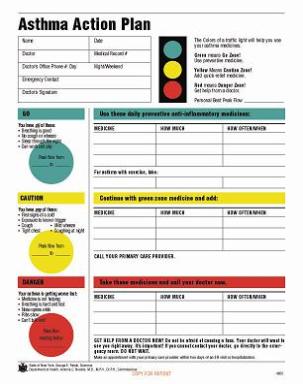https://www.you

Welcome to the South Bay Allergy & Asthma Blog where you will find tips and advice from board certified Allergy and Immunology doctors and nurses on dealing with nasal, seasonal, insect, medication, food and skin allergies. Also visit our blog to stay current on news and advances in care and treatment of allergy, asthma and immunology, including developments in the world of immunotherapy: allergy shots, drops and tablets.
Friday, July 20, 2012
Dr. Marks on TV!
Check out our very own Dr. Katie Marks in this speciality clip about Gluten allergies!!
https://www.you
https://www.you
Monday, July 16, 2012
All About Air Filters

Confused about all the choices out there? Here are some great tips for choosing the right air filter, http://www.webmd.com/asthma/
Visit our website at www.southbayallergy.com for more information.
Friday, July 13, 2012
FREE Internet training program, School-based Anaphylaxis Preparedness: Policies in Practice
Attend the free internet training program, School-based Anaphylaxis Preparedness: Policies in Practice on July 31, 2012 at 9AM. To register, visit: http://www.cvent.com/d/1cqzln/
Thursday, July 12, 2012
Dr. Marks on TV!
Dr. Katie Marks, our board certified allergist, expert and community resource, will be featured on an upcoming news segment about gluten allergies. Stay tuned for the link! Or visit our Facebook page: http://www.facebook.com/southbayallergy
Monday, July 2, 2012
Asthma Action Plan
Having an asthma action plan is the best way to prepare for asthma attacks – and to be able to act quickly when an attack happens.
The breathlessness of an asthma attack is scary to witness, especially when the person having trouble breathing is your child or another loved one. But you have to act quickly and make smart decisions even if you are frightened – and having a solid asthma action plan in place could even save a life.
Your asthma action plan should include knowledge of your loved one’s triggers, symptoms, and prescription medications, and will help you answer questions like these in an emergency:
- What type of asthma treatment should you administer?
- When should you call the doctor?
- When should you call 911?
Asthma Treatment: Who Makes the Asthma Attack Action Plan?
Your Allergist can help develop a plan for treatment of your asthma. We like to use an asthma action plan to help customize each patients treatment.
Asthma Attack: How to Respond to Asthma Symptoms
Learning which symptoms require which action is an important starting point for any caregiver of someone who has asthma attacks. Symptoms that need a response include:
- Wheezing
- Chest tightening
- Shortness of breath
- Waking up at night with symptoms
- Difficulty completing usual activities (in a child, this may be a lack of interest in playing)
Your loved one's action plan for asthma treatment should detail:
- The daily dose of medication needed for long-term asthma control
- The triggers or allergens that can set off asthma symptoms
- The dosage of the medication you can give and whether it’s appropriate to administer an additional or increased dose when symptoms flare
- The symptoms that warrant a call the doctor or dictate a trip to the emergency room (and it should include contact information for those locations).
Most people who have only occasional asthma symptoms in response to allergens or strenuous exercise can get by with an albuterol rescue inhaler. But the exact medication and dose needed when symptoms intensify depends on such individual factors as age, overall health, and other medical issues.
People with persistent or severe asthma may have one or two medications they take daily to control their asthma symptoms and prevent asthma attacks, in addition to rescue inhalers to help control immediate symptoms. It’s also important in asthma treatment to try to remove allergens or triggers from your loved one’s environment.
Asthma Action Steps: When to Call the Doctor
If your loved one has an asthma attack and doesn’t experience relief within 10 minutes of administering a short-acting beta-2 inhaler, such as an albuterol inhaler, it’s time to call the doctor. It’s important to note that these inhalers are not intended for daily use in asthma treatment. If the asthmatic uses the inhaler two or more times a week to control asthma symptoms, the asthma is poorly controlled and the doctor should be notified.
Asthma Action Steps: When to Go to the Emergency Room
Go to the ER if:
- You gave the prescribed medications and symptoms were not relieved in the time you expected (usually about an hour)
- Your loved one cannot walk or talk and breathe
Giving additional or stronger doses of medications beyond what has been prescribed can be dangerous (sometimes even leading to death). You will need a professional medical checkup because there may be another underlying illness causing the asthma symptoms.
Bottom line: An asthma action plan will make you and your loved one feel more secure. Talk to your loved one's doctor and get your specific plan of action in place before an asthma attack occurs.
Source: EverydayHealth.com
Subscribe to:
Posts (Atom)
